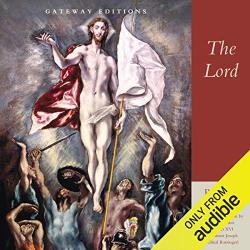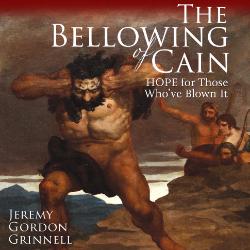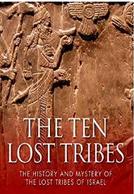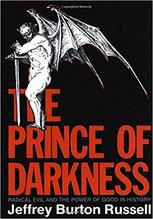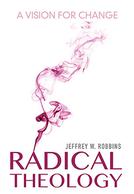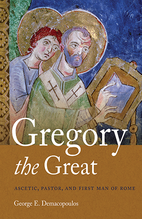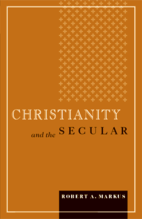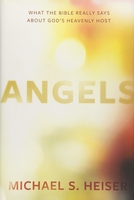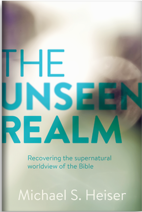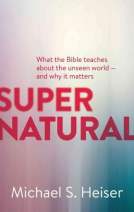Theological NonFiction Audiobooks|
The Lord
Romano Guardini
Genre – Theology, Christology
Publisher – Regnary Publishing
Length – 26:13
Considered a masterpiece by Catholic scholars, Guardini’s The Lord has remained in print for decades. In it, Guardini wishes to present a correct understanding of Jesus by writing about his life and person, with all the limitations which the subject necessarily imposes. Although Christ lived in a specific historical milieu, and though knowledge of the forces at work in it furthers an understanding of him, Guardini states that a biography of Christ is practicable only within the narrowest confines. Neither Jesus’ personality nor his works are immediately traceable to the conditions of the times, for he came “out of the fullness of time” contained in the mystery of God, and it was to this mystery that he returned after he had moved among us. Pope Benedict XVI wrote of it: “The Lord has not grown old, precisely because it still leads us to that which is essential, to that which is truly real, Jesus Christ Himself. That is why today this book still has a great mission.“
The Bellowing of Cain
Jeremy Gordon Grinnell
Genre – Christian Self-Help, Trauma Recovery
Publisher – St. Asinus Publishing
Length – 6:35
It’s a strange form of Christianity that would deny that perpetrators of evil can be redeemed. The Bellowing of Cain was written primarily to those who, like Cain, have made horrible life-wrecking decisions and secondarily to those who have a calling to live and work with them. It is written by a fellow traveler who understands what it means to destroy one’s life…for he once did so. In the culture of disposable people, we need a book like The Bellowing of Cain to teach us about the unique journey taken by people with such baggage—baggage like shame, loss, and remorse. Such luggage is heavy and bends the back of those who must carry it, and they often walk alone. Who will speak for them? The Bellowing of Cain offers hope to people whose deepest wounds are self-inflicted. What does the run up to self-destruction look like? How do you survive the explosion? How do you rebuild a meaningful life afterward? The book offers sage perspectives on how to grow, not through trauma that comes from without, but that which we inflict on ourselves.
- Winner of The Xulon Press Christian Writers Award for best self-help book of 2023!
- Silver Medal Winner for Self-Help Books of Illumination Book Awards 2024
- Finalist for Religious Nonfiction of Foreword Indie Awards 2023
- Silver Medal Winner for Christian Nonfiction of Global E-Book Awards 2024
- Finalist for Religious Nonfiction of National Indie Excellence Awards 2024
- Finalist for Christian Nonfiction of Next Generation Indie Book Awards 2024
The Ten Lost Tribes
The History and Mystery of the Lost Tribes of Israel
Charles River Editors
Genre – Historical Survey
Length – 1:23
A short historical survey of the question what happened to the 10 Northern tribes of Israel after they were deported by the Assyrians. Reviews the theories, facts, legends, and spurious claims about their location in the Diaspora. Semi-academic but very listenable. For anyone interested in Jewish or Biblical history.
(Hear a sample on audio samples page)
The Prince of Darkness
Jeffrey Burton Russell
Genre – Historical Survey
Length – 11:01
After a compelling essay on the nature of evil, Russell uncovers the origins of the concept of the Devil in various early cultures and then traces its evolution in Western thought from the time of the ancient Hebrews through the first centuries of the Christian era. Next he turns to the medieval view of the Devil, focusing on images found in folklore, scholastic thought, art, literature, mysticism, and witchcraft. Finally, he follows the Devil into our own era, where he draws on examples from theology, philosophy, art, literature, and popular culture to describe the great changes in this traditional notion of evil brought about by the intellectual and cultural developments of modern times.
Radical Theology
A Vision for Change
Jeffrey W. Robbins
Genre – Theology
Length – 8:48
Radical theology and political theology are terms that have gained a lot of currency among philosophers of religion today. In this visionary new book, Jeffrey W. Robbins explores the contemporary direction of these movements as he charts a course for their future. He claims that radical theology is no longer bound by earlier thinking about God and that it must be conceived of as post-secular and post-liberal. As he engages with themes of liberation, gender, and race, Robbins moves beyond the usual canon of death-of-God thinkers, thinking “against” them as much as “with” them. He presents revolutionary thinking in the face of changing theological concepts, from reformation to transformation, transcendence to immanence, messianism to metamorphosis, and from the proclamation of the death of God to the notion of God’s plasticity.
Gregory the Great
George E. Demacoplos
Genre – Historical Theology
Length – 6:03
George E. Demacopoulos’s study on Gregory the Great is the first to advance the argument that there is a clear connection between the pontiff’s thought and his actions. By exploring unique aspects of Gregory’s ascetic theology, wherein the summit of Christian perfection is viewed in terms of service to others, Demacopoulos argues that the very aspects of Gregory’s theology that made him distinctive were precisely the factors that structured his responses to the practical crises of his day. With a comprehensive understanding of Christian history that resists the customary bifurcation between Christian East and Christian West, Demacopoulos situates Gregory within the broader movements of Christianity and the Roman world that characterize the shift from late antiquity to the early Middle Ages. This fresh reading of Gregory’s extensive theological and practical works underscores the novelty and nuance of Gregory as thinker and bishop.
Christianity and the Secular
Robert A. Markus
Genre – Historical Theology
Length – 3:22
Robert A. Markus examines the place of the secular in Christianity, locating the origins of the concept in the New Testament and early Christianity and describing its emergence as a problem for Christianity following the recognition of Christianity as an established religion, then the officially enforced religion, of the Roman Empire.
Markus focuses especially on the new conditions engendered by the Christianization of the Roman Empire. He argues that when the autonomy of the secular realm came under threat in the Christianized Roman Empire after Constantine, Christians were forced to confront the problem of adjusting themselves to the culture and society of the new regime.
Angels
What the Bible Really Says About God’s Heavenly Host
Michael S. Heiser
Genre – Theology
Length – 7:37
What the Bible really says about angels is overlooked or filtered through popular myths. This book was written to help change that. It’s a book about the loyal members of God’s heavenly host, and while most people associate them with the word “angel,” that’s just one of many terms the Bible uses for supernatural beings. In his latest book, Angels, Dr. Heiser reveals what the Bible really says about God’s supernatural servants. Heiser focuses on loyal, holy heavenly beings because the Bible has a lot more to say about them than most people suspect.
The Unseen Realm
Michael S. Heiser
Genre – Christian/Jewish Theology
Publisher– Lexham Press
Length – 15:30
Supernatural
Michael S. Heiser
Genre – Christian/Jewish Theology
Publisher– Lexham Press
Length – 3:51

